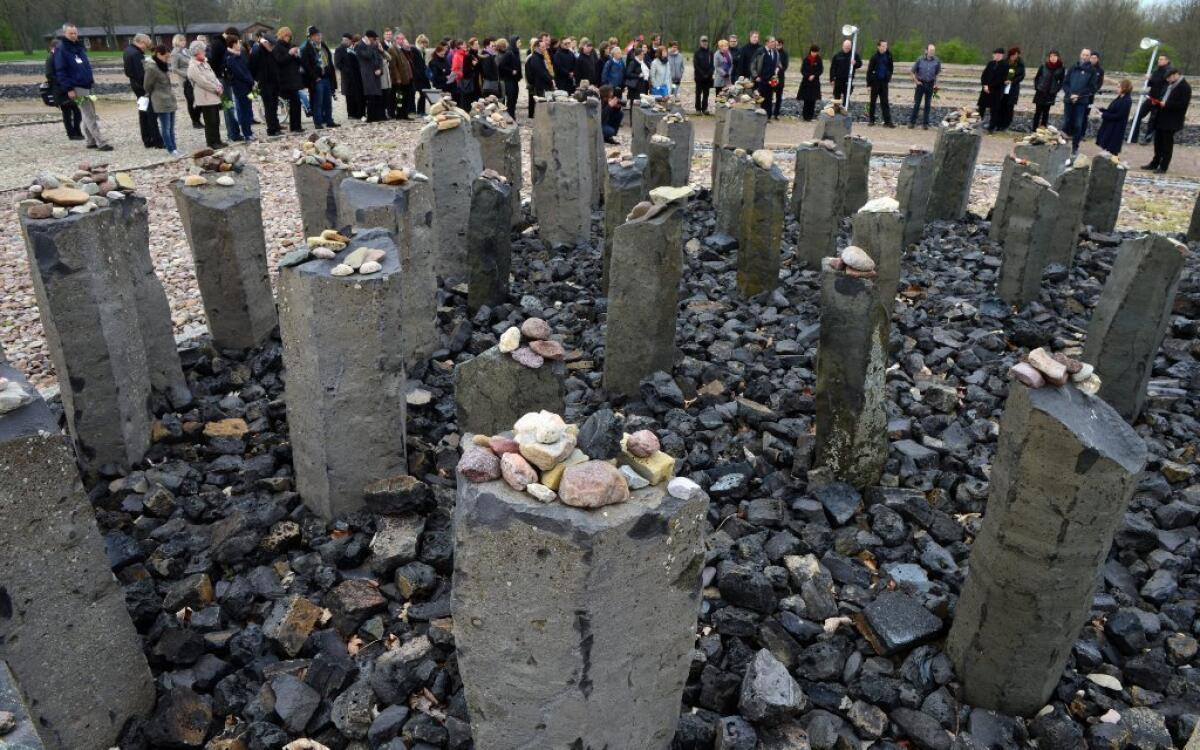Opinion: The Holocaust mistake at Rialto schools is more than a glitch

- Share via
Here’s an assignment: Do some research on the topic of President John F. Kennedy and write a paper on whether he existed or not, with evidence from both sides.
Can’t be done? You’re right. Kennedy’s tenure as president is simply a fact. It can’t be argued.
Gold star for you. Now go have a little talk with the curiously unthinking educators at the Rialto Unified School District, who assigned students to a “critical thinking” report -- critical thinking is a highly valued skill in the new Common Core curriculum standards -- on whether the Nazi genocide of Jews and other groups happened.
In order to teach critical thinking, though, one first has to know it.
District administrators eventually apologized -- profusely -- and said they would change the assignment and institute sensitivity training for the people involved.
Sensitivity training, by all means, but how about some training about what critical thinking actually means and the difference between fact and theory?
Even that would be too little and too late at this point. As tempting as it is to brush off the mess as just a weird educational glitch, this situation is too unacceptable on too many levels to just let it go without further examination.
For one thing, this wasn’t the work of a single teacher working in isolation. A team of teachers came up with the assignment, helped by the district’s educational services division, the people who are supposed to be the experts on developing appropriate assignments. All of which says some scary things about how well Rialto’s academic staff understand the new curriculum standards and how well they carry out basic instructional functions. If they could so thoroughly botch something this clear, what else are they teaching under the guise of Common Core?
Then consider that when the San Bernardino Sun first reported the story, the district’s reaction was to defend the assignment.
“We want our students to engage in developing critical thinking skills,” district spokeswoman Syeda Jafri told the Sun. Worse, school board member Joe Martinez reportedly wrote in an email to the paper, “This will allow a person to come to their own conclusions.”
Sorry, Mr. Martinez, but people cannot come to their own conclusions about whether facts are facts. That is not critical thinking. Four times five equals 20; students don’t get to make up their own minds about whether that’s true.
The problems at Rialto seem to stretch from the front lines to the top, and the state should be checking into how this came about. Maybe it was an innocent mistake, in which the problem is educators who need a stiff reminder about some academic basics; or maybe there was a problematic school culture. This isn’t just a teeny mishap; this is a number of supposedly educated people, responsible for educating other people, who appear to lack knowledge and thinking skills and the common sense to know when it’s time to say, “We blew it.”
It’s worth noting that the Rialto situation might be a harbinger of troubles to come with Common Core, though probably future gaffes won’t be so outrageous on other fronts. I support the standards, which call for deeper thinking skills, more sophisticated reading, research and writing, as well as a fuller grasp of math concepts. But we shouldn’t try to fool ourselves about them: They’re much harder to teach and easier to fumble. It takes not just well-trained teachers but smart teachers to do this.
Teachers who, you know, understand what critical thinking really is.
More to Read
A cure for the common opinion
Get thought-provoking perspectives with our weekly newsletter.
You may occasionally receive promotional content from the Los Angeles Times.










